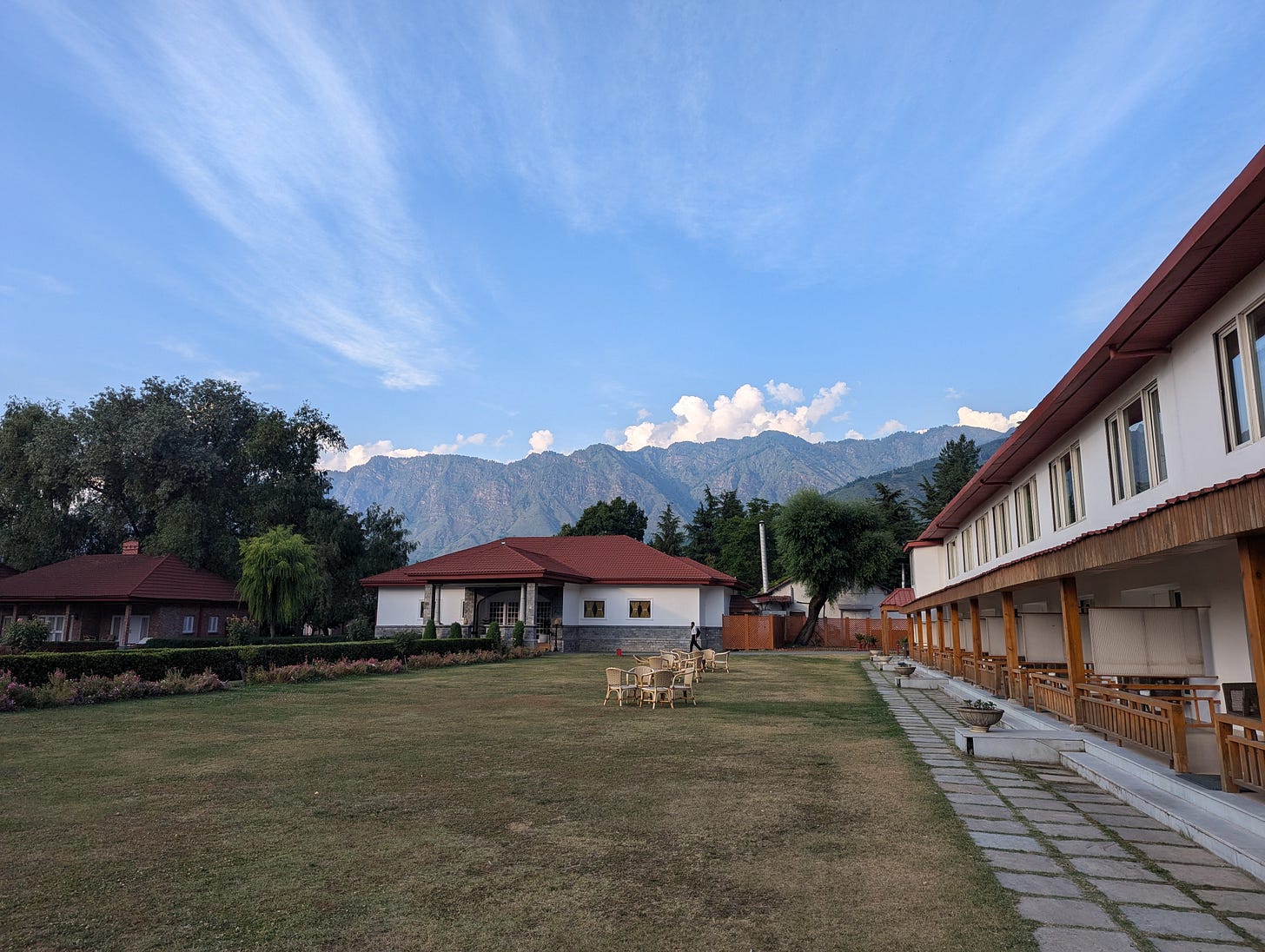Yellowface and other out of body experiences
If you’ve ever had the slightest aspiration to write a novel, read Yellowface. It’s the kind of blunt satire you could finish in a few hours, and probably the most accurate description of the world of publishing I’ve ever read. From the endless rejections that flay your soul to the borderline psychopathy that the writing life demands, it’s the cautionary tale I didn’t even know I needed.
If you’re among the 0.0001% of people who haven’t yet heard what the story is about (can you tell I’ve been flying Virgin?) a white woman, June, steals her Asian friend Athena’s unpublished manuscript when Athena chokes to death on a pancake. What follows is a literary heist that gets more and more absurd and cringe, from June publishing the novel under her middle name (Song) to seem racially ambiguous, to publishers milking everyone’s trauma for every last cent.
Of course, author R.F. Kuang herself is Asian, but writing from the perspective of the white protagonist, which gives the whole thing Inception-level meta-narratives. And she, too, is part of the story of the novel. While we like to believe there was some golden age where art could be considered separately from the artist, that has never been the case. The Brontë sisters had to publish under men’s names because to write as women would destroy their reputations.*
Part of me wishes it weren’t so. The part that’s introverted, that just wants to tell a good story that’s judged on its own merits, that doesn’t want to be part of a brand. It’s why I chose a pen-name, one that means uprooted from the native land, so I wouldn’t be part of the discourse around what authors of my ethnicity are allowed to write. I wrote about this for Mslexia here: Give a woman a mask, and she’ll take you somewhere new. Inhabiting other bodies, after all, is why we write at all.
In an NPR interview, Kuang talks about this:
“A lot of our standards about cultural appropriation are language about - don't write outside of your own lane. You can only write about this experience if you've had that experience. I don't think they make a lot of sense. I think they're actually quite limiting and harmful and backfire more often on marginalized writers than they push forward conversations about widening opportunities. You would see Asian American writers being told that you can't write anything except about immigrant trauma or the difficulties of being Asian American in the U.S. And I think that's anathema to what fiction should be. I think fiction should be about imagining outside our own perspectives, stepping into other people's shoes and empathizing with the other.”
Of course, there’s a fine line between empathizing with people different than yourself and harvesting their stories and trauma for your next novel, which is honestly the part where being a writer is a bit psychopathic, to be honest. The intention is empathy, to understand an experience beyond our own. The execution is usually psychopathy–”what’s the most interesting way to tell this story?”
It’s a line every writer struggles with. Munir Hachemi has written a book, Living Things, that I haven’t read yet, about four young men who seek out adventure to soak up “experience as literary capital” and find exploitation instead. I feel that in my bones, especially on this particular trip, where I am hunting in the Himalayas for the specific landscape and atmosphere that I want to permeate my stories. For instance, this hotel and one-time palace is the model for the “Deora estate,” the setting for my upcoming fantasy novel series.
But back to the Brontës: if you’re in London, watch Underdog: the other, other Brontë. Which is pretty much the same story as Yellowface, except grounded in fact about how Charlotte Brontë tore down her younger sister Anne and stole her experiences for her own stories. It’s agonizing, at times, watching a successful woman feel threatened by other women’s success, as if there can only be one in the room. The casting of the show is also perfect, subverting the idea that the Brontë sisters may only be played by white women, or that disabled actors can only play roles calling for disabled people.
Still, it’s necessary for us aspiring writers and artists to wrestle with the question of where we source our material and how we determine the perspectives we can portray with integrity. And to struggle, not so much with the question of what we are allowed to write, but with the fact that when we operate in spaces where we’re marginalized, we might just get hit with friendly fire.
For instance, this review by Eudora Weity on the book jacket of J. D. Salinger’s Nine Stories made me see red for a minute.
“What this reader loves about Mr. Salinger’s stories is that they honor what is unique and precious in each person on earth. Their author has the courage–it is more like the earned right and privilege–to experiment at the risk of not being understood.”
It is so hard for people of color to get published at all. We don’t get to take risks. Even Kuang’s agent originally tried to talk her out of publishing Yellowface. It helped that she had so many other successful books behind her already, but the glass cliff is real.
You know what it actually takes to experiment at the risk of not being understood? Power. Power can come in many forms: past successful novels, financial security, institutional or peer support, being white, male, straight, cis, etc.
Godspeed, Rebecca Kuang. Thank you for blasting open those doors. Now hold them open after you.




